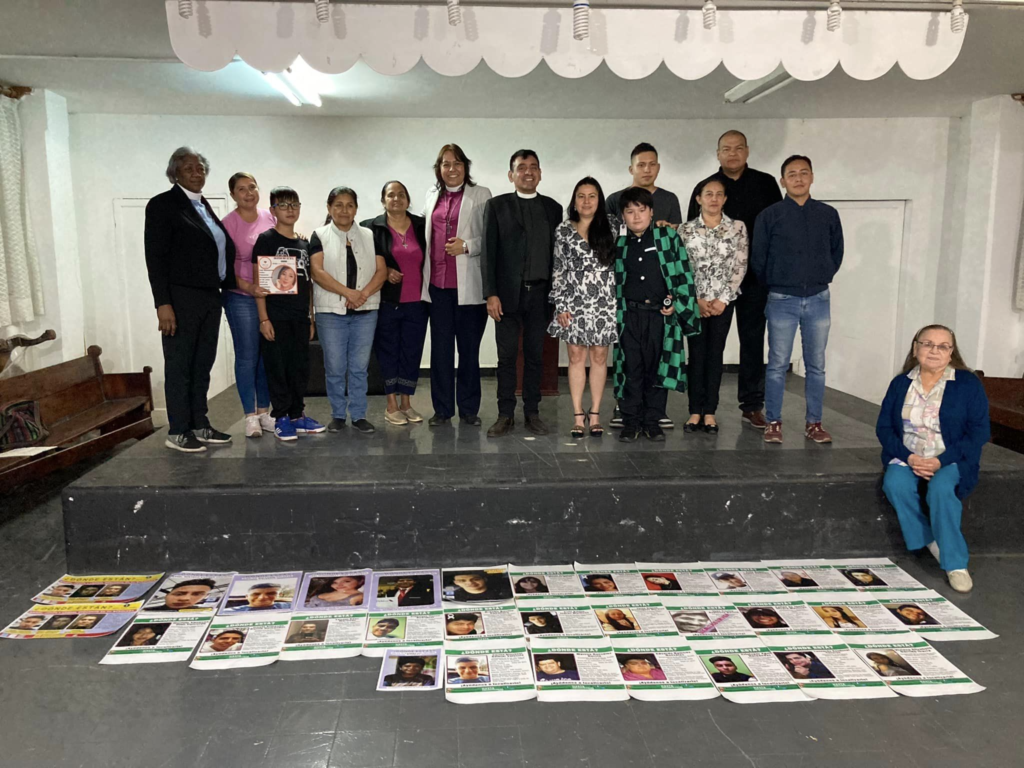Human Beings Should Not Disappear
Imagine waiting for a friend to meet you after work, for your sibling to come home from school, or a parent to walk through the front door, but they never appear. You’re confused. This isn’t like them.
You try texting or calling. No reply. You wait a bit longer and try again. Nothing.
You reach out to their friends, classmates, coworkers, but no one knows anything. Or maybe you get a call later asking if you’ve seen one of them.
Human beings aren’t supposed to simply disappear. And yet, hundreds of thousands of people around the world have done just that, leaving their loved ones wondering where they could be, if they are alive, and if they will ever see them again.
Enforced disappearance is a regular weapon in wartime and under dictatorships. It’s also a documented part of daily life in over one hundred countries around the world. In some cases, individuals are targeted because of what they do, who they are, or who they associate with. In others, it’s far more random. Someone was at a bus stop at the wrong time or was walking alone at night. Or maybe someone was desperate to create a better life for their family and connected with the wrong person.
Today is the International Day of the Victims of Enforced Disappearances [www.un.org/en/observances/victims-enforced-disappearance], a day set aside by the United Nations [www.un.org] to focus on the millions of people affected by enforced disappearances as part of the 2010 adoption of the International Convention for the Protection of All Persons from Enforced Disappearance.
Only 113 of the 193 UN Member States have ratified or signed the Convention [indicators.ohchr.org]. Of these, 13 countries are part of The Episcopal Church: Austria, Belgium, Colombia, Cuba, Dominican Republic, Ecuador, France, Germany, Haiti, Honduras, Italy, Switzerland, and Venezuela.
Another of the 113 countries to ratify the Convention is Mexico. The Anglican Church of Mexico (La Iglesia Anglicana de México) was part of The Episcopal Church for many years before becoming an autonomous province of the Anglican Communion in 1995. The Rev. Glenda McQueen, Partnership Officer for Latin America and the Caribbean, and Elizabeth Boe, Mission Personnel Officer, visited partners in several dioceses in Mexico in May 2023
News reports, movies, and tv shows relating to Mexico often focus on the impact and personalities of drug cartels and trafficking, creating a deeply flawed and harmful narrative. During their visit, Glenda and Elizabeth learned that human trafficking – of live human beings or sometimes only their organs – is now more profitable than the drug trade.
The stark reality of this situation for Mexico is that officially there are 111,000 people who have disappeared. However, some academics believe that number should be multiplied by at least two, if not four. There are also at least 57,000 unidentified bodies in morgues across the country.
During Glenda and Elizabeth’s time in the Diocese of Mexico, they joined Bishop Sally Sue Hernández for the Vigil of Pentecost at the Parish of the Holy Family (Parroquia Anglicana de la Sagrada Familia) in Mexico City and spent time with the Rev. Arturo Carrasco Gómez and members of the parish community.

In addition to being the rector, Fr. Arturo is also the diocesan lead for working with families of people who’ve disappeared (personas desaparecidas). The accompaniment of families who are searching for their loved ones (familias buscadoras) is at the heart of this ministry and part of Fr. Arturo’s daily life and work.
Together with collectives (colectivos) of familias buscadoras from his parish and others, Fr. Arturo been part of field searches – looking for bones and human remains in mountains, deserts, beaches, rivers, and other locations where bodies may be buried – as well as living searches in prisons, rehabilitation centers, hospitals, psychiatric facilities, and on the streets. Not long ago, they conducted a search of 53 kilometers of the Mexico City sewer system.
The impact of enforced disappearances touches almost everyone. The Rev. Belina Carranza, Dean of St. Andrew’s Seminary (Seminario de San Andrés) and Rector of the Parish of the Holy Spirit (Parroquia del Espíritu Santo) in Mexico City, told Glenda and Elizabeth that “it’s knocking on all of our doors.” Several members of her parish have disappeared.
A search using some of the most common hashtags relating to personas desparecidas – #DóndeEstán, #HastaEncontrarles (Where are they/Until they are found) – will bring up names, faces, and stories of people of all ages. This story sharing intentionally and repeatedly remindd everyone that those who are missing are named, known, and loved, and offers a sharp rebuke to the traffickers and all those who seek to transform human beings into mere commodities.
In an interview with Fr. Erik Silva, a colleague in the Diocese of Mexico, Fr. Arturo shared part of what has guided his ministry:
“…the church is called to do something more than beautiful services (masses), that is very important for those of us who believe in God, but I also believe that we have a responsibility before society to lead a life consistent with our faith.” (“…la iglesia está llamada hacer algo más que misas bonitas, que es muy importante para quienes creemos en Dios, pero también creo que tenemos una responsabilidad ante la Sociedad de llevar una vida congruente con nuestra fe.”)
Christians are called to make a commitment to living a life that truly reflects our faith, so our actions witness to the all-encompassing power of the love of God and our presence serves as a reminder of Jesus’ promise, “I am with you always, to the end of the age.” (Matthew 28:20b)
Today, on this International Day of the Victims of Enforced Disappearances, we remember those who are missing and everyone who is grieving for them, and we give thanks for all those whose leadership and example inspire us to live lives of love, understanding, and solidarity.
Our Global Partnerships team extends a deepfelt thank you to Fr. Erik Silva of the Diocese of Mexico for his fantastic interview with Fr. Arturo on his podcast Aquí platicando ando.
To read more about enforced disappearances, click here.
Reflection by Elizabeth Boe, Mission Personnel Officer

